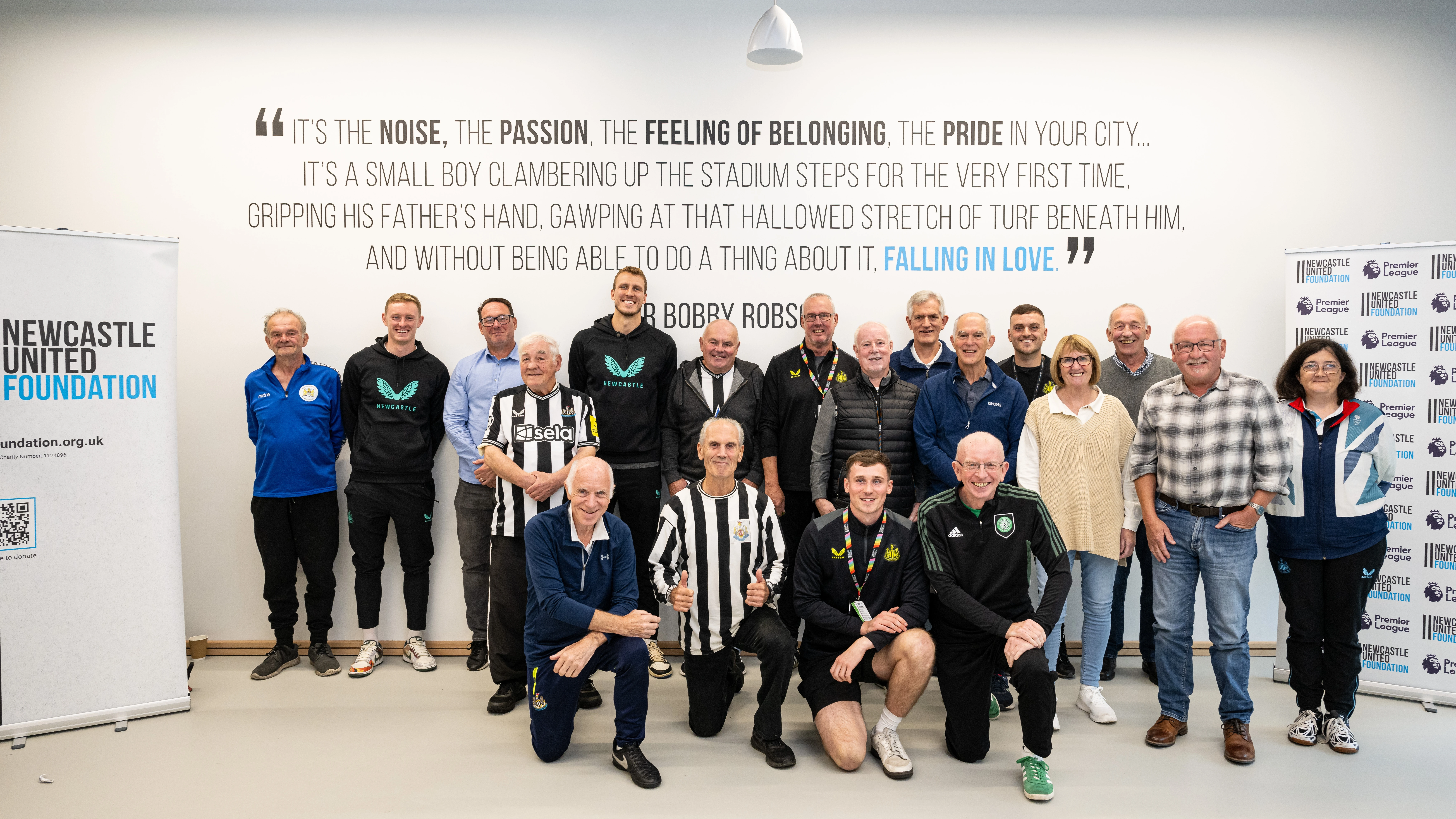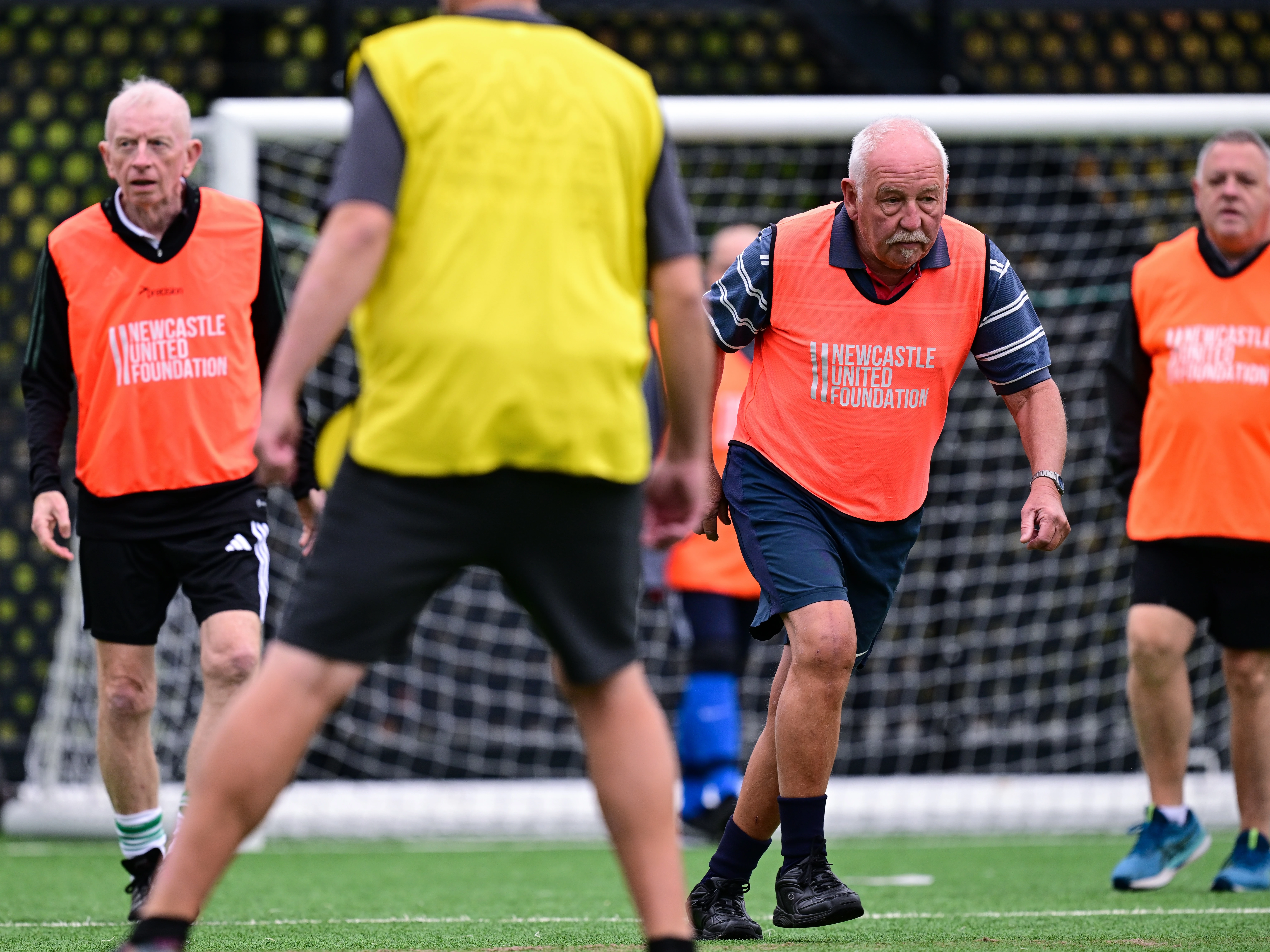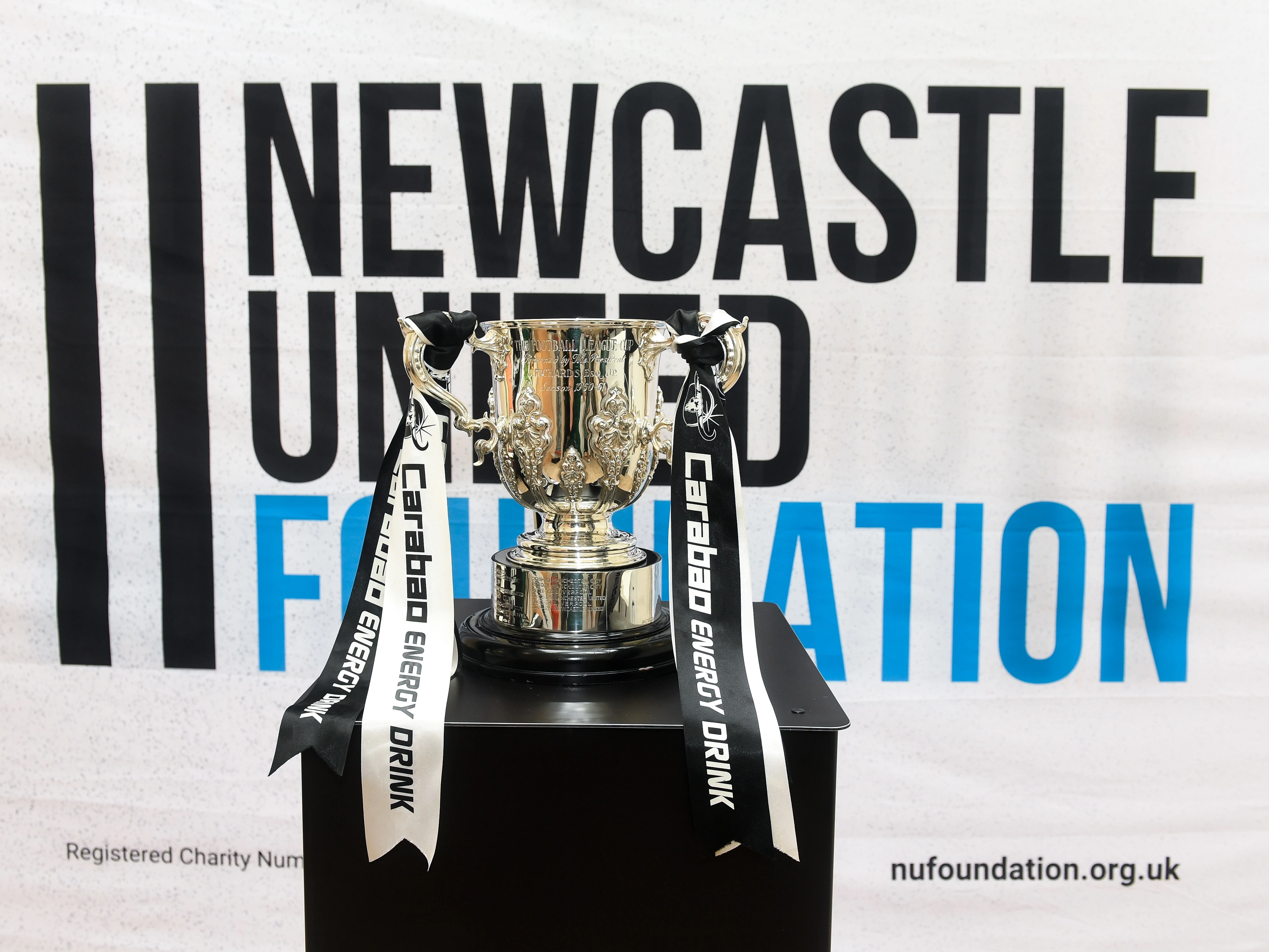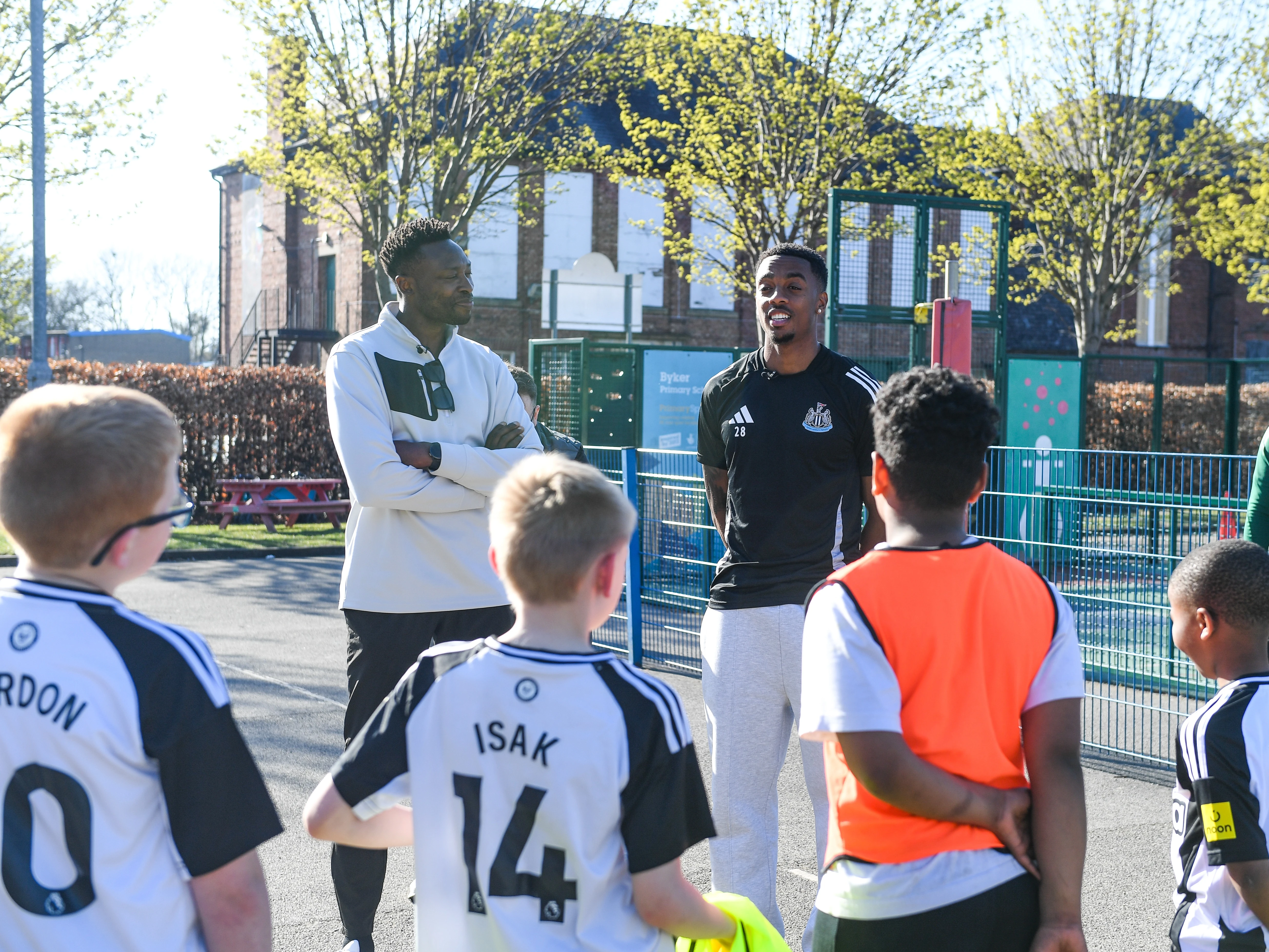The welcome for the local heroes, from a room of individuals who once suffered in silence, epitomised the impact of the Foundation's mental health group, Football Talks.
Ahead of World Mental Health Day, the Newcastle United duo took part in an emotional mental health workshop created by the club's official charity, supporting adults throughout the North East.
It's been a memorable couple of weeks for both Burn and Longstaff, with the Geordie boys sending St. James' Park into a frenzy with goals against Paris Saint-Germain as well as starring in an unbeaten run of seven games. Away from the pitch the impact has been equally impressive with their 90 minutes at Football Talks leaving a lasting impact on the participants as the pair opened up on their experiences of dealing with mental health.
Burn and Longstaff joined participants for a Q&A session, speaking openly about their mental health and how they have addressed low points, whilst also hearing from individuals who have suffered a number of mental health issues from poor sleep and stress, through to the distress of coping with family suicides.
"I think mental health is so much bigger than football and it shows that people are no more important than each other," Longstaff explained during the session as he openly spoke about a time when he was struggling a number of years ago. "Just because you see somebody playing football on the telly, it doesn't mean that they aren't affected by the same things that somebody watching the game is. Mental health doesn't discriminate and the lows can affect anybody at any time."
Ten years ago Dan Burn also admitted that there were times when he struggled, speaking about how social media criticism could often play a role in poor mental health.
"It's hard when you're in that negative headspace because you don't actually realise that you're in it and you think that some of the things you're worrying about and stressing about don't matter or have an impact, but they do," he said. "Now when I look back on times when I was struggling, I can't believe that those thoughts were even going through my head."
Poor mental health continues to rise, with the North East of England having the highest rate of adult male suicides in the UK.
With such distressing statistics for the region, Football Talks is continuing to work towards the vital support needed to reach and engage with those most in need. With more than 2,000 attendances in the three years of Football Talks, 86 per cent of participants feel less self-isolated because of Football Talks, whilst 93 per cent of participants saying they have now gained new friendships and a support network by attending the sessions.
"The work that the Foundation does across all their programmes is so important but to see the work first hand on supporting mental health is really special," said Burn, who has attended a number of the charity's programmes across their key areas. "The help, support and togetherness of the group was clear to see and if anybody out there is struggling then I cannot recommend highly enough that people get in touch with the Foundation.
"It's such a taboo thing and something that we don't talk about enough. Mental health effects everybody from all walks of life and it's something that needs to be talked about more to be able to help those who maybe don't seek the support they need or want."
Longstaff, an ambassador for Newcastle United Foundation admitted that the session was emotional at times, hearing from participants on their experiences of poor mental health.
"The session was powerful and sad," he said. "There was a gent who opened up and talked about suicides in his family and it was hard to hear. For him to have this group of people and support from the Foundation is really important because it's a space where he and other can help each other and support each other. These Football Talks session make more difference than anybody can realise or describe."
More than 430 Football Talks workshops have been delivered since launching in 2020, supporting participants to open up about their feelings and combatting a number of health issues such as stress, anxiety and depression along with social isolation.
Thomas Graham, Health and Wellbeing Project Coordinator at Newcastle United Foundation, leads the group session every week and has forged strong friendships with the group who meet at NUCASTLE, the Foundation's community hub just five minutes' walk from St. James' Park. He spoke about the impact of the sessions, explaining: "Football Talks launched during the height of the pandemic and was our way of connecting with participants who were socially isolated during lockdown.
"The Foundation's Health and Wellbeing team have delivered more than 1,150 hours of Football Talks sessions since then and we see a core group attending week after week to chat and build friendships which ultimately improves their wellbeing.
"Getting Dan Burn and Sean Longstaff involved in Football Talks has been a fantastic experience and for them to share their insight on maintaining good mental health has been really beneficial for our group. Our participants really enjoyed joining Team Burn or Team Longstaff for the quiz portion of the session - it was tight, but Team Burn eventually came out on top.
"Support from the Premier League Charitable Fund allows us to deliver Football Talks for free every single week and without this funding, these sessions simply wouldn't be possible. We are extremely grateful to both the Premier League Charitable Fund and Newcastle United Football Club for their amazing support."
During the sessions, a topic of conversation can often be about that first step towards seeking help with mental health, however Longstaff believes that people in the North East should remember the community spirit that is often referred to Geordies and the region.
"The special thing about Newcastle is how good the people are - it's a city where people can talk to each other," he said. "It sounds stupid but you could be sat on a bus next to somebody who is going through so much or something terrible but by saying hello it can really help. It's a tiny little gesture that can help so much. People here have a genuine interest in other people and helping. Just by talking to somebody you can really help and make a difference."
World Mental Health Day takes place on 10th October each year with the aim to raise awareness and drive positive change for mental health. Newcastle United and Newcastle United Foundation continue to work with local authorities, the Premier League and communities to support those living in the region.
The Foundation's Health and Wellbeing team deliver a number of free sessions designed to improve physical and mental wellness, including Walking Football, health checks, 12-week personal development programmes and more.
For more information on support available from the Foundation, visit nufoundation.org.uk or email [email protected].




